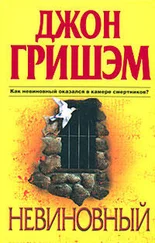Dyer said, “I understand, Miss Green. What else would you like to know? This is a simple case. You’ve seen the dead body. We have the murder weapon. Besides the victim there were three other people in the house, at the scene. One was unconscious. One was a sixteen-year-old boy whose fingerprints were found on the murder weapon. The third person, his sister, told Deputy Tatum that her brother shot Stuart Kofer. That’s it. Plain and simple.”
Miss Tabitha took a deep breath and fell back into her chair. Lowell waited and gave them plenty of time to think. Finally, he said, “Thank you, Sheriff.”
Without a word, Ozzie stood and left the room.
Benny Hamm looked across the table at Miss Tabitha and asked, “What’s the problem? There’s plenty of proof. What else do you want to do?”
“Oh, nothing. It just seems so fast, you know?”
Lowell said, “Well, Miss Tabitha, I assure you there’ll be plenty of time to hash out all the issues in this case. After I file the indictment, my office will investigate and prepare for a full-blown trial. The defense will do the same. Judge Noose will insist on a speedy trial, and before long you and everyone else on this grand jury can show up in the main courtroom down the hall and see how it goes.”
Benny Hamm said, “Let’s vote.”
“Let’s do it,” someone said.
Miss Tabitha said, “Oh, I’ll vote to indict. It just seems too perfunctory. Know what I mean?”
All sixteen voted and the indictment was unanimously returned.
17
Tensions at the Coffee Shop were lessened considerably when the deputies found another breakfast spot. For years Marshall Prather, Mike Nesbit, and other assorted deputies would arrive early to eat biscuits and stir up the gossip, but not every morning. They had other favorite spots, and their shifts changed so their routines varied. Jake, though, had been there six mornings a week for years, and he had always enjoyed mixing it up with the deputies. But they were boycotting him now. When it became apparent that Jake had no plans to alter his ritual, they went elsewhere, which was fine with Jake. He did not enjoy the forced pleasantries, the strained looks, the feeling that things were not the same. They had lost a comrade, and Jake was now on the other side.
He tried to convince himself it went with the territory. He almost believed that one day not too far away the Gamble case would be behind them and he and Ozzie and his men would be pals again. But the rift bothered him greatly, and he could not shake it.
Dell kept him abreast of the latest rumblings. Without giving names, she would report that yesterday’s lunch crowd was all abuzz with the coming indictment and questions about when and where the trial might be. Or that after Jake left that morning a couple of farmers got pretty loud in their criticisms of Judge Noose and the system and Jake in particular. Or that three ladies she hadn’t seen in years sat by the window for an early lunch and talked quietly about Janet Kofer and her nervous breakdown. There was a palpable fear that Jake Brigance was about to pull another insanity stunt and “get the boy off.” And on it went. Dell heard everything, remembered everything, and relayed some of it to Jake when he stopped by late in the day and the café was empty. She was worried about him and his growing unpopularity.
The morning after the indictment, Jake arrived at six and joined the usual crowd of farmers, cops, some factory workers, mostly men who rose early and punched in. Jake was about the only white collar who was a regular and for this he was admired. He often dispensed free legal advice and commented on Supreme Court rulings and other oddities, and he laughed along with the crooked lawyer jokes.
Across the square at the Tea Shoppe, the white collars gathered later in the morning to discuss golf, national politics, and the stock market. At the Coffee Shop they talked about fishing, football, and local crime, what little there was of it.
After the “good mornings,” a friend said, “You seen this?” He held up a copy of The Ford County Times. It was published every Wednesday and had managed to catch the late-breaking story from Tuesday afternoon. A bold headline screamed: “GAMBLE INDICTED FOR CAPITAL MURDER.”
“Surprise, surprise,” Jake said. However, Lowell Dyer had called him last night to confirm the news.
Dell appeared with a coffeepot and filled his cup. “Good mornin’, sweetheart,” Jake said.
“Keep your hands to yourself,” she shot back, and scooted away. There were a dozen regulars in already, and by 6:15 the café would be packed.
Jake sipped his coffee, and reread the front-page story, and learned nothing new. The reporter, Dumas Lee, had called his office late yesterday afternoon fishing around for comments, but got none from Portia. Mr. Brigance, she explained, was in court.
“Your name is not mentioned,” Dell said. “Already checked.”
“Darn. I need the publicity.” Jake folded the newspaper and handed it back. Bill West, a foreman at the shoe factory, arrived and fell into his usual chair. They talked about the weather for five minutes as they waited on breakfast. It finally arrived and Jake asked Dell, “What took so long?”
“The chef’s lazy. You wanna discuss it with her?”
The chef was a large rowdy woman with a short temper and the habit of throwing spatulas. They kept her in the back for a reason.
As Jake was shaking Tabasco sauce on his grits, West said, “I almost got in a fight about you yesterday. Guy I work with said he’d heard that you were braggin’ about havin’ that boy out by his eighteenth birthday.”
“Did you punch him?”
“No. He’s quite a bit bigger.”
“He’s also quite stupid.”
“That’s exactly what I called him. I said that, first of all, Jake doesn’t go around poppin’ off like that, and, second, you wouldn’t try to game the system for a cop killer.”
“Thanks.”
“Would you?”
Jake spread strawberry jam on his wheat toast and took a bite. He chewed and said, “No. I wouldn’t. I’m still trying to get rid of the case.”
Bill said, “That’s what I keep hearin’ from you, Jake, but you’re still on the case, right?”
“Yes, afraid so.”
A crane operator named Vance walked by the table, stopped and stared at Jake. He pointed a finger and said loudly, “They’re gonna fry that boy’s ass, Jake, regardless of what you try to do.”
“Well good mornin’, Vance,” Jake said. Heads were turning in the direction of the noise. “How’s the family?”
Vance was a once-a-week guy and was fairly well known at the café. “Don’t get smart with me. You got no business in court with that boy.”
“That falls into the category of someone else’s business, Vance. You take care of yours. I’ll take care of mine.”
“A dead officer is everybody’s business, Jake. You pull a fast one and get him off on one of those ‘technicalities’ and there’ll be hell to pay around here.”
“Is that a threat?”
“No sir. It’s a promise.”
Dell walked in front of Vance and hissed, “Sit down or get out.”
He rumbled back to his table and for a few minutes the café was quieter. Bill West finally said, “I suppose you’re gettin’ a lot of that these days.”
Jake replied, “Oh yeah, but it’s just part of the job. Since when are lawyers admired by all?”
—
HE LOVED THE office at 7:00 a.m., before the day began and the phone started ringing, before Portia arrived at 8:00 with a list of things for him to do and questions to answer, before Lucien rolled in mid-morning and stomped upstairs with his cup of coffee to disrupt whatever Jake was doing.
Читать дальше












![Джон Гришэм - Апелляция [Фейк]](/books/403002/dzhon-grishem-apellyaciya-fejk-thumb.webp)